Black Book – -apkrig
In the field of video games, this well of ideas has, of course, been the most exploited by the spell series, but Slovan is not only alive with white-haired dudes. And since the game Geralt has been retired for several years, fans of all the horns can reach for the recently published Black Book, for example.
Here, too, as a witch, you will help the villagers with all sorts of supernatural vermin, only a pack of cards will serve you instead of two swords – and surprisingly, we are not talking about Gwent. Although, in the end, actually a little yes. Black Book is a half-text adventure, half-deck-building game in which you will fight demons with cards.
Contents
There are no shorts with chorts
The heroine of the Black Book is a girl named Vasilisa, who is destined to inherit the role of a village incantation from her grandfather and help people from the area from supernatural hardships. Vasilisa may not play twice in her new role, but when her lover ends up in the depths of hell itself, she decides to meet her destiny. If she could break the seven seals in the Black Book of her grandfather’s incantations, she could get her love back from the clutches of hell.
The topic is satisfactory, although it is a bit surprising that rescuing an unhappy young man remains quite in the background, especially from the beginning. The game pays much more attention to individual stories, during which Vasilisa tries to break the seals of the Black Book. Such a matter requires the assistance of the right demon, so you are looking for a water seal, an aspen miner, and so on. And you wouldn’t believe it, immediately another unhappy villager has a problem with the monster you need to talk to.
As a result, the story has a highly episodic character. Each seal = one demon = one more or less closed chapter revolving around the fate of a new ensemble of unfortunates. After the first few hours of playing, you’ll probably forget you’re doing all this because of a young man trapped in hell, but I wouldn’t blame you. The world of the village wizard is so engaging in the Black Book that similar details can easily evaporate from your head.
The play takes its inspiration in Slavic mythology really seriously, even so that next to it, the Sorcerer also looks like a school fan-fiction. Instead of a generic fantasy repainted in Slavic style, a trip to the realistically depicted Russian countryside awaits you, where animated folk superstitions and folklore mix with historical realities quite naturally.
The main and secondary stories sound believable and civil, the demonic vermin is presented here in its original, unwesterned form, and the whole thing just looks very natural and fresh. Russian dubbing and the frequent use of original expressions in English subtitles also help a lot. And so Vasilisa is named a koldun instead of a witch, the demons are called chorti here, and instead of incantations you will send conversations to them.
It’s a trifle, but it’s easy to believe that Vasilis’s story could have actually taken place somewhere in the Russian countryside some hundred years ago. And if you are more interested in the historical context of the game, the game will gradually unlock an encyclopedia with records of real history, culture, ethnic groups and folklore.
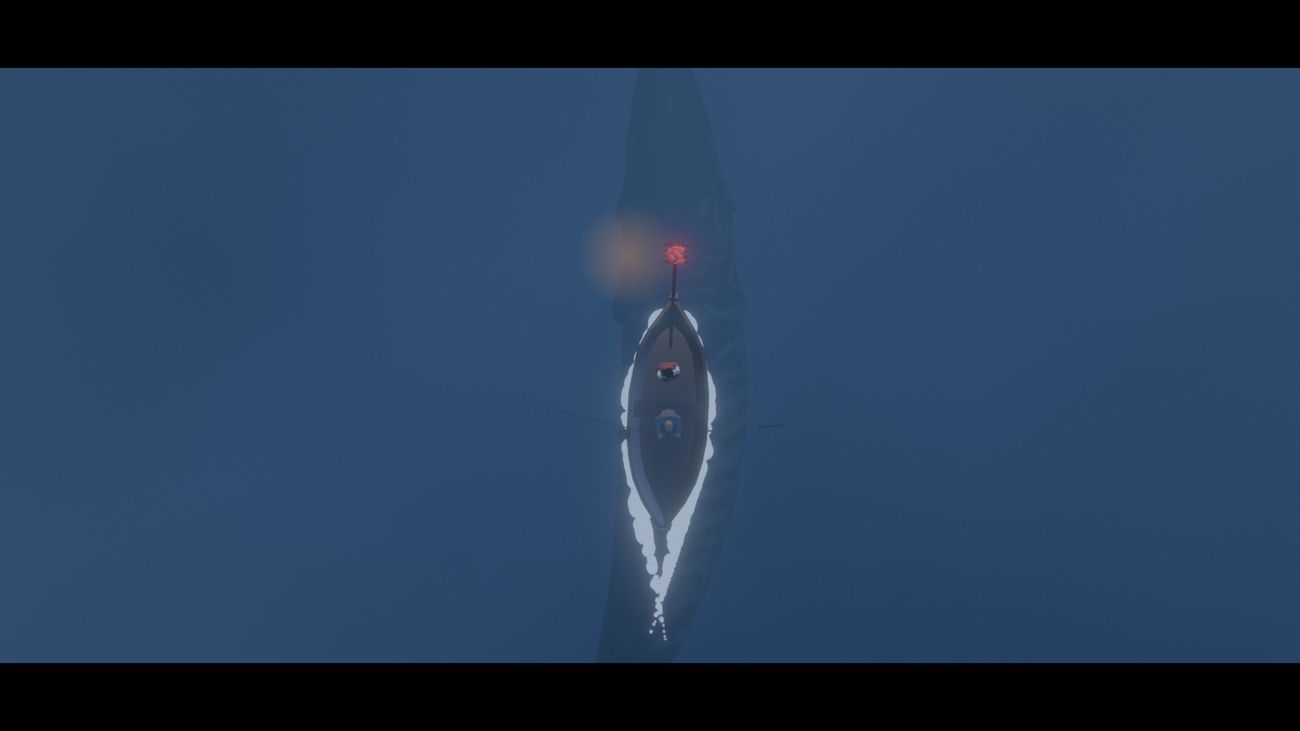
Point and click
But most players will be mainly interested in how the Black Book is played. The game sticks to one formula practically all the time. With the help of a map, you travel from one location to another, you play a dialogue or a scene in each location, and when it’s time for a duel, it’s time to pull out the cards.
Walking on the map is more or less linear, only sometimes you can bounce to a few turns, where some extra content is waiting for you: sometimes a few herbs, other times a sidequest or a bonus duel. And sometimes only a harbinger of things to come will be hidden between the lines. The game likes to test you and often lets you slip out of a difficult situation, if you were careful in previous dialogues and did not miss any important help. Sometimes your deductive skills and a good memory will be much more valid for you than all the cards in the Black Book.
In individual locations, the game will usually suffice with a simple dialog box, but from time to time it will give you a little more freedom and let you run around the area arbitrarily. Although these parts emotionally “inflate” the game, I personally would have done without them. They don’t add much, they slow down the pace and the main heroine’s lousy pathfinding doesn’t help either.
Otherwise, however, the Black Book has a very pleasant dynamic. Scenes usually spill out nicely, the individual scenarios are relatively well written, and from time to time the game puts you in front of some choice that will pay off ugly in a few hours of playing.
After all, the abacus of your sins and especially your poor collection are also related to ugly returns. The game “rewards” the chorts for recruiting through the game, which Vasilisa recruits for her services. But most of the game will be much more difficult for you than to help you, because once such a chort has nowhere to realize, he decides to torment his master (understand the penalties for attack and defense, the malfunction of some cards and similar difficulties). You can relieve yourself by sending your chorts to torment the villagers in the area, but by doing so you are collecting points to your sins counter, which the game will add up at the end of the millennium.
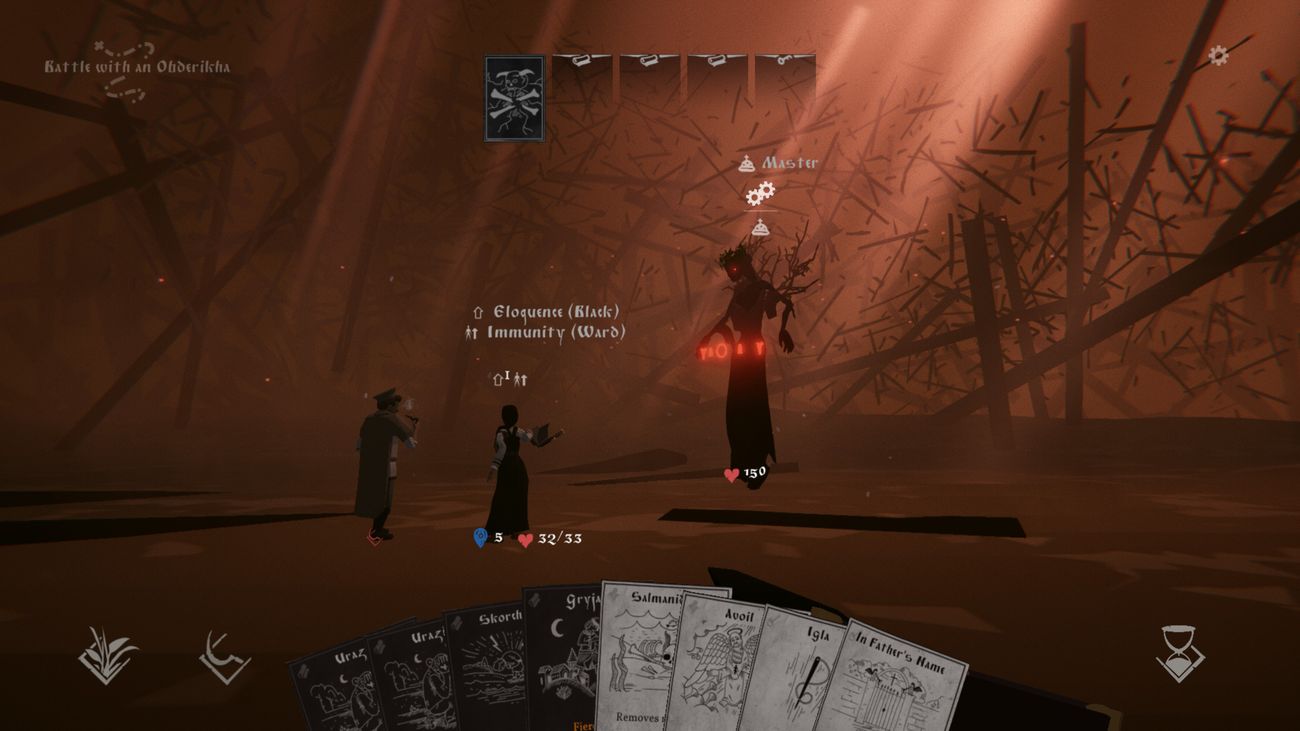
Black ace up his sleeve
And how is it with those card fights? They work here similarly to, for example, in Slay the Spire or, for example, to my favorite Thronebreaker. Thanks to the Black Book, you have a deck of offensive and defensive cards, from which you compose your interview in each round. You know the actions of your enemies in advance, so you can always defend against their attacks or, conversely, prepare to break through their defenses. Most of the time, however, you will have to make compromises depending on what cards you currently have available and how many of them will fit in your conversation.
Of course, there are all sorts of synergies between the individual cards. These reinforce each other, this one is worth using, only if you have enough of them, in short, such a card classic. In addition, you organize your deck yourself, so it’s up to you to estimate how many of those cards you need and how much is already enough, so that the deck doesn’t become an unorganized mish-mash, from which you will never get what you need.
The whole system may start very simply, but over time it will branch off nicely. With each new seal you get new cards and after a few chapters you can win decently with new synergies. The difficulty is similarly slow. I’m far from a pro at card games, but I really went through the first few parts with my finger in my nose. That is, until the meeting with Rusalka, where I got stuck on some twelve attempts. Since then, the game starts to get hard and especially the bosses can be quite annoying, but fortunately there is a difficulty setting for both more demanding and holiday players.
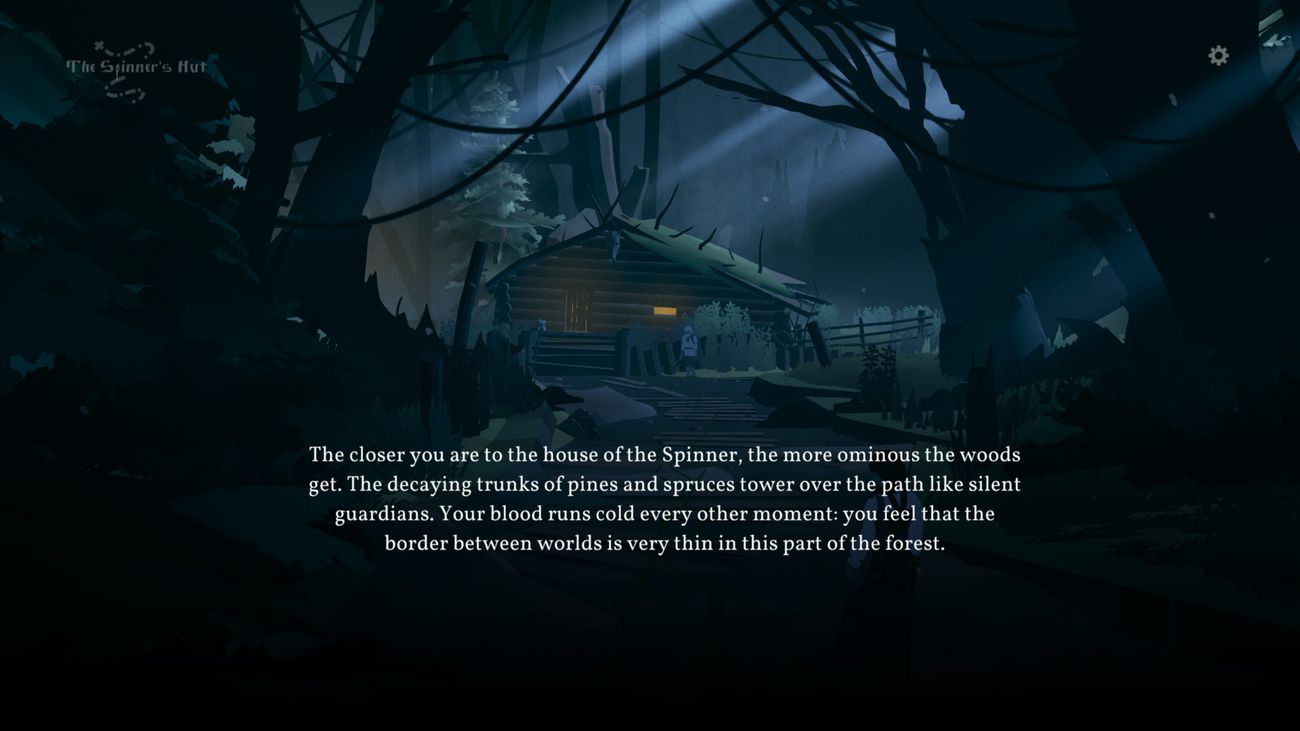
Difficulties of eastern imports
The development studio Morteshka is a small indie team from which it would be foolish to expect a precisely tuned title. There are simply a few touches and unfinished work, although they are more of surface defects in beauty. But I think it’s fair to point out a few sharp edges that the developers haven’t been able to sand down before the release.
First of all, there is a graphic design, which, with its angular stylization and large one-color areas, obscures that there was probably no budget left for a proper visual. He’s doing somehow halfway, and even if some impressive scene appears here and there, he can’t hide the plank and repetitive animations.
However, most mistakes are rather in the form of small unfinished work, which can be reconciled in some way. For example, the fact that the game will calculate the defense and attack of your conversation, but it cannot include all the synergies in the calculation, and sometimes it will bake you badly. Or that it sometimes forbids you to leave the location before the fight and imprisons you in a scene with an invincible monster after automatic saving. Other times, regular equations from the game code peeked out at me in the description of the subject, other times he was angry with the transition between scenes…
The English translation also falters, both in the story texts and in the card descriptions, which sometimes means that you are not 100% sure what the call will actually do. Even the user interface can be a bit confusing at first, especially when assembling a package or sending chorts on their torture expeditions.
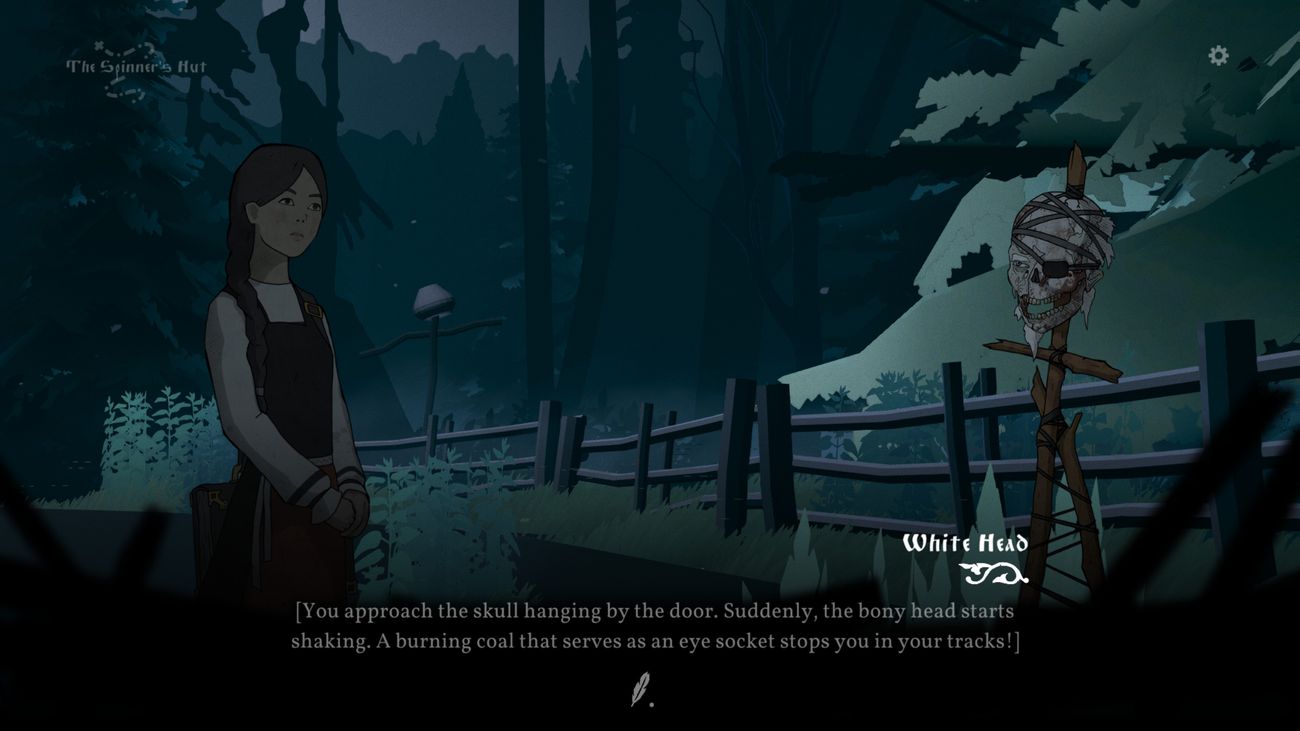
But the core of the game as such is solid, except perhaps for one observation of card fights: Because you draw cards randomly from the entire deck each turn again, luck plays a slightly bigger role than would be useful. I was convinced of this on my own skin during the mentioned duel with Rusalka, in which I went on the first five attempts with an identical build, and at the same time I always got a diametrically different result. While once I didn’t even scratch it, the second time I almost defeated it just because I was getting black cards when I needed to attack, and white cards when I needed to defend.
My last reproach is then a half reproach: Black Book is a long game. Maybe too much. Her story will suffice for an estimated 20 hours, which is not enough for a linear single-player game. Of course, this is not necessarily bad, after all, it keeps a good pace all the time and does not fall into a stereotypical grind. Even so, I can’t help feeling that the game would benefit if only five of those seals were needed.
Maybe it wouldn’t matter if the fights were a little more complex than in Slay the Spire. Or if the main plot was more exciting than in Thronebreaker. Or if, due to the length, not all the small unfinished work and mistakes stood out even more.
On the other hand, if you enjoy the Black Book, you can enjoy it even longer. And if you are only partially excited, you may simply feel a slight fatigue of the material in front of the finish line.
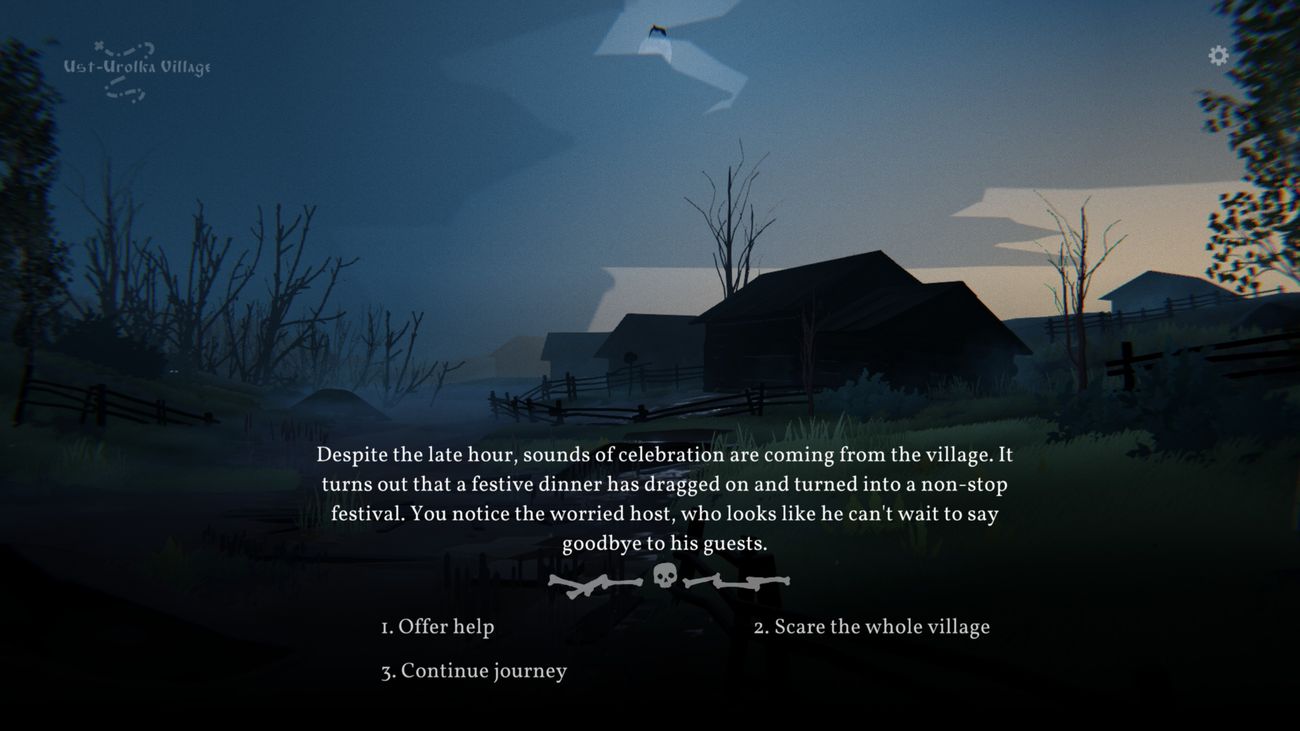
Conclusion
The fact that there is a small indie studio behind the Black Book leads me to some indulgence. But in the end, she doesn’t even need a squint, especially for the 25-euro price tag. There could be fewer truths, mistakes and unfinished work, and the story could have a bigger goal, but at its core, a fun card deck-building game is still waiting for you, which makes the most of its mythological resources. For fans of the genre and Slavic folklore, it is practically a duty, but I would also recommend others not to lose sight of it.



